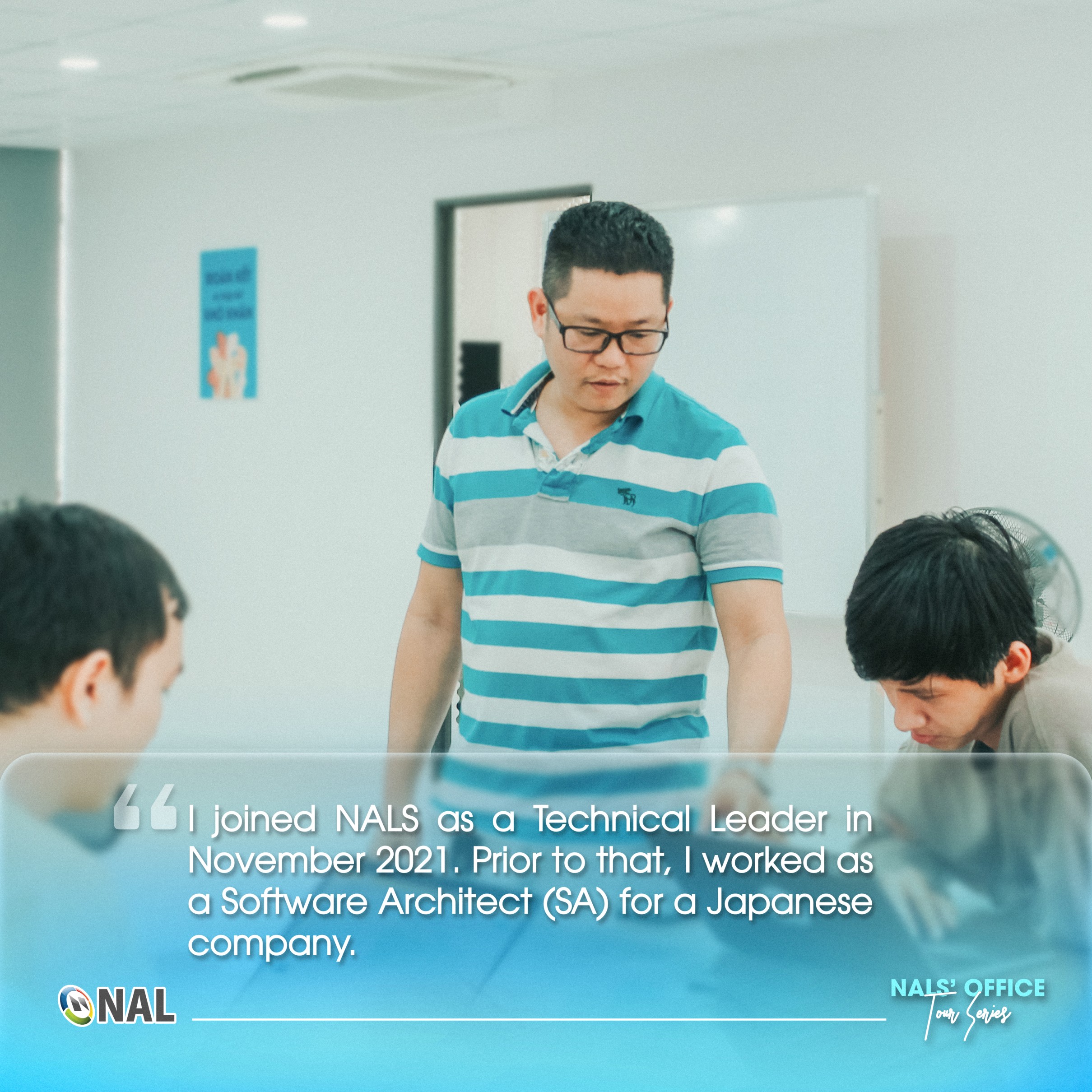In tech projects, the Technical Leader is a key player responsible for the technical aspect of the entire development process. This position guides and leads the technical aspects of the team, providing solutions, tools, and techniques while working alongside team members to develop software, code, and solve complex problems. In this article, we will explore the role of a Technical Leader at NAL Solutions and learn from the success story of Mr. T.Q.T, a Technical Leader who has overcome challenges with new technologies and difficult techniques.
Roles of a Technical Leader
The Technical Leader position in an IT company is a leadership role that is responsible for providing technical direction and guidance to the development team. The Technical Leader oversees the technical aspects of a project, including the design, development, testing, and deployment of software systems. They work closely with project managers, business analysts, and other stakeholders to ensure that the project meets business objectives and technical requirements.
The Technical Leader is also responsible for promoting technical excellence within the team by implementing best practices, reviewing code, and ensuring that the team is up-to-date with the latest technologies and industry trends. They also mentor and provide technical guidance to team members to develop their skills and knowledge.
The Technical Leader is expected to have strong technical skills, experience in software development, and a deep understanding of software architecture and design. They should also possess excellent leadership, communication, and problem-solving skills, as well as the ability to work collaboratively with other teams and stakeholders. The Technical Leader is an essential position in an IT company, and their contributions are vital to the success of the company’s projects.
To become a successful Technical Leader, you will need:
Strong technical skills:
A Technical Leader needs to have strong technical skills to effectively guide and oversee the development team. This includes knowledge of programming languages, software architecture, database management, and other technical aspects of software development. A Technical Leader must be able to stay up-to-date with new technologies and industry trends and be able to implement these technologies to improve the quality of the software developed.
Leadership skills:
A Technical Leader is responsible for managing the development team and ensuring that everyone is working towards the same goals. As such, they must have excellent leadership skills, including the ability to delegate tasks, provide constructive feedback, motivate team members, and resolve conflicts. They should also be able to set clear goals and expectations for the team and provide a clear path to achieving those goals.
Communication skills:
A Technical Leader should be an effective communicator, both verbally and in writing, to effectively convey technical concepts and ideas to team members and stakeholders. They should be able to explain technical problems, solutions, and trade-offs to non-technical stakeholders such as project managers, clients, and business analysts.
Problem-solving skills:
A Technical Leader should be able to identify and solve complex technical problems. They should be able to debug code, analyze complex system issues, and find creative solutions to technical challenges. They should be able to use critical thinking and logic to evaluate different solutions and choose the best one for the project.
Collaboration skills:
A Technical Leader should be able to work effectively with other teams and stakeholders, including project managers, business analysts, and clients. They should be able to collaborate with other team members to solve problems, make decisions, and develop software systems that meet business requirements.
Creativity:
A Technical Leader should be creative and innovative, able to come up with new and better ways to solve technical problems and develop software systems. They should be able to think outside the box and bring fresh perspectives to the development team.
Mentoring and coaching skills:
A Technical Leader should be able to mentor and coach team members to develop their technical and soft skills. They should be able to provide constructive feedback, identify areas for improvement, and help team members develop a growth mindset. They should also be able to create a culture of learning within the development team.
Continuous learning:
A Technical Leader should have a strong desire for continuous learning and be willing to stay up-to-date with the latest trends and technologies in the industry. They should be open to new ideas, attend conferences and meetups, and read industry publications to keep up with the latest developments in the field.
Overall, becoming a successful Technical Leader requires a combination of technical and soft skills. By possessing these skills, a Technical Leader can lead the development team and ensure the success of the projects they work on.
Technical Leader Career Path and Opportunities:
As a Technical Leader, there are various career paths and opportunities that you can pursue. Here are some of the common paths:
Engineering Manager: Technical Leaders who are interested in managing teams and leading projects can become Engineering Managers. As an Engineering Manager, you will be responsible for managing a team of software developers, testers, and other technical staff. You will also be responsible for the overall project delivery, including planning, execution, and monitoring.
Product Manager: Technical Leaders who are interested in product development and management can become Product Managers. As a Product Manager, you will be responsible for developing and managing the product roadmap, defining the product features, and working with various teams to ensure the successful delivery of the product.
Chief Technology Officer (CTO): Technical Leaders with a wealth of experience in technology and strategic thinking can become CTOs. As a CTO, you will be responsible for setting the technical vision and direction for the company, as well as developing and implementing the technology strategy. You will work closely with other senior leaders to ensure that the technology aligns with the business goals.
There are also opportunities to work in various industries, such as finance, healthcare, retail, and more. As technology continues to advance, the demand for Technical Leaders is expected to grow, providing many opportunities for career growth and advancement.
Success Story of Technical Leader at NAL Solutions:
Meet Mr. T.Q.T, a successful Technical Leader at NAL Solutions who has overcome challenges and approached projects with new technology and difficult techniques. Let’s follow his success story to learn more about the Technical Leader role and the importance of continuous learning in the technology industry.
By his words, A Technical Leader plays a crucial role in any technology project, responsible for overseeing the technical aspects of the entire development process. They not only provide solutions, tools, and techniques but also work collaboratively with team members to develop software, code, and solve technical problems, all while ensuring that the end product meets the technological architecture and customer requirements.
To become a successful Technical Leader, one must possess a combination of professional knowledge, practical experience, and essential soft skills such as leadership, management, creativity, teamwork, and problem-solving. Furthermore, with the technology industry constantly evolving and improving, Tech Leads need to continuously learn and adapt to stay ahead.



